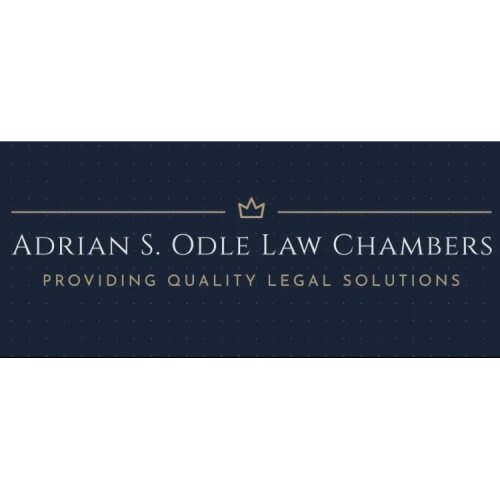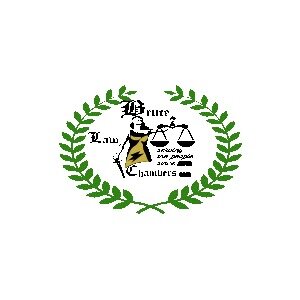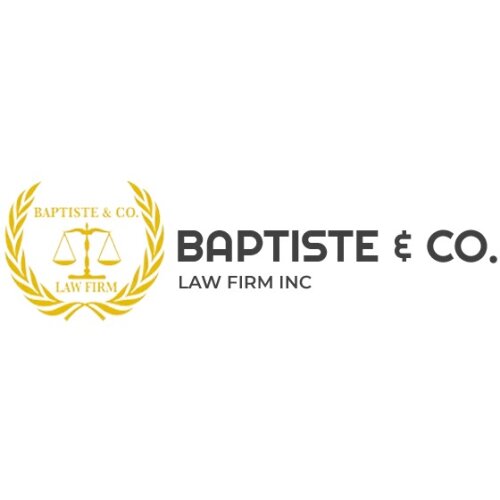Best Tax Increment Financing Lawyers in Kingstown
Share your needs with us, get contacted by law firms.
Free. Takes 2 min.
List of the best lawyers in Kingstown, Saint Vincent and the Grenadines
About Tax Increment Financing Law in Kingstown, Saint Vincent and the Grenadines
Tax Increment Financing (TIF) is a public financing method that is used to subsidize community improvement projects in Kingstown, Saint Vincent and the Grenadines. The concept involves using the future gains in taxes to help fund current improvements, which are expected to eventually create the conditions for those gains. This type of financing is generally used to encourage economic development in an area, boosting its infrastructure, and attracting private investments by ameliorating environmental, social, and physical concerns. While not extensively used across Saint Vincent and the Grenadines yet, TIF stands as a developmental tool envisaged through legislative frameworks that seek to revitalize underdeveloped or blighted areas.
Why You May Need a Lawyer
There are several common situations where individuals or businesses might seek legal counsel for TIF in Kingstown:
- Understanding Complex Legislation: Navigating the legal landscape of TIF requires an understanding of local laws and financial implications, which can be quite complex.
- Structuring and Negotiating Financing: A lawyer can assist in structuring deals and negotiations to ensure all agreements are beneficial and legally sound.
- Compliance and Regulatory Advice: Legal advice is crucial for ensuring compliance with local regulations and requirements, including zoning laws and public approval processes.
- Dispute Resolution: If disputes arise in the course of a TIF project, having a lawyer can be essential to navigate legal challenges or court proceedings efficiently.
- Litigation Support: In the event of litigation, legal representation is vital to safeguard interests and address any issues legally and strategically.
Local Laws Overview
The local laws pertinent to TIF in Kingstown, Saint Vincent and the Grenadines, include several key aspects:
- Development Zones: Identification and approval of areas for TIF are subject to legislative guidelines and require designation as 'blighted' or in need of economic stimulus.
- Public Engagement: Laws mandate public meetings and consultations to ensure community involvement in the TIF projects.
- Increment Calculation: The method for calculating tax increments, including base value and projection of increments, is established by local ordinances.
- Project Approval: Legal processes outline the steps and requirements for project approvals, including necessary environmental and feasibility studies.
Frequently Asked Questions
What is the primary advantage of Tax Increment Financing?
The primary advantage is that it leverages future tax revenues to fund current projects, encouraging development without immediate tax increases on existing businesses or households.
Is public approval required for a TIF project?
Yes, public engagement and approval are integral processes in TIF projects to ensure transparency and community support.
What types of projects can be funded using TIF?
TIF is often used for infrastructure improvements, such as roads and utilities, as well as redevelopment projects for blighted areas to encourage further private investment.
Can TIF funds be used for residential developments?
Yes, residential developments are often components of TIF projects aimed at urban revitalization and increasing housing availability.
How are the incremental taxes calculated?
The increment is calculated based on the difference in value from the time the TIF is established to the increased value post-development.
Who oversees the implementation of a TIF project?
TIF project oversight typically involves local government authorities, planning commissions, and any designated redevelopment agencies.
Are there any risks associated with TIF?
Risks include potential increases in property taxes if projects do not yield targeted growth, as well as possible displacement of existing residents or businesses.
How long do TIF districts last?
The duration of a TIF district varies but typically lasts about 20 years, depending on the specific terms established by the local governing body.
What impact does TIF have on local school funding?
TIF may temporarily divert tax revenues from schools, but any agreements typically include provisions to offset these impacts through other funding mechanisms.
Can TIF projects be modified once they've started?
Yes, modifications can be made, but typically require additional review and approval from the governing authorities and may involve further community engagement.
Additional Resources
For those seeking more information on TIF in Kingstown, the following resources can be helpful:
- Saint Vincent and the Grenadines Town and Country Planning Department: Provides guidelines and assistance for developments.
- Ministry of Finance: Offers insights on financial structuring and tax implications of TIF projects.
- Legal Practitioners in Kingstown: Various law firms specializing in real estate and development law can offer personalized legal advice.
Next Steps
If you find yourself in need of legal assistance regarding TIF projects in Kingstown, consider the following steps:
- Schedule a consultation with a local attorney specializing in real estate, development, or municipal law to evaluate your needs.
- Gather all relevant documentation pertinent to your TIF project to facilitate informed discussions with your legal advisor.
- Engage with local government officials to understand the specific procedural requirements for your project.
- Monitor the progress of TIF legislation and amendments that might impact your interests and make sure your legal strategy adapts to any changes.
Lawzana helps you find the best lawyers and law firms in Kingstown through a curated and pre-screened list of qualified legal professionals. Our platform offers rankings and detailed profiles of attorneys and law firms, allowing you to compare based on practice areas, including Tax Increment Financing, experience, and client feedback.
Each profile includes a description of the firm's areas of practice, client reviews, team members and partners, year of establishment, spoken languages, office locations, contact information, social media presence, and any published articles or resources. Most firms on our platform speak English and are experienced in both local and international legal matters.
Get a quote from top-rated law firms in Kingstown, Saint Vincent and the Grenadines — quickly, securely, and without unnecessary hassle.
Disclaimer:
The information provided on this page is for general informational purposes only and does not constitute legal advice. While we strive to ensure the accuracy and relevance of the content, legal information may change over time, and interpretations of the law can vary. You should always consult with a qualified legal professional for advice specific to your situation.
We disclaim all liability for actions taken or not taken based on the content of this page. If you believe any information is incorrect or outdated, please contact us, and we will review and update it where appropriate.











